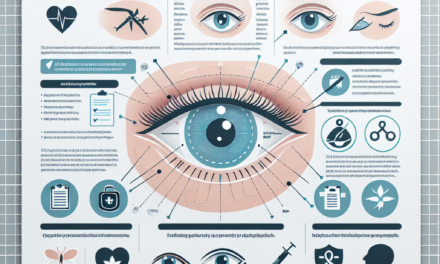Senators Warner and Wyden Propose New Bill for Healthcare Cybersecurity Requirements

In an era where digital transformation is reshaping industries, the healthcare sector stands at a critical juncture. The increasing reliance on digital systems and electronic health records (EHRs) has brought about significant improvements in patient care and operational efficiency. However, it has also exposed the sector to unprecedented cybersecurity threats. Recognizing the urgent need to bolster cybersecurity in healthcare, Senators Mark Warner and Ron Wyden have introduced a new bill aimed at establishing comprehensive cybersecurity requirements for healthcare organizations. This article delves into the intricacies of the proposed legislation, exploring its potential impact on the healthcare industry, the challenges it seeks to address, and the broader implications for patient safety and data protection.
The Current State of Healthcare Cybersecurity
The healthcare industry has become a prime target for cybercriminals due to the sensitive nature of the data it handles. Patient records, which include personal identification information, medical histories, and financial details, are highly valuable on the black market. Despite this, many healthcare organizations have lagged in implementing robust cybersecurity measures, making them vulnerable to attacks.
According to a report by the Ponemon Institute, healthcare data breaches have increased by 42% over the past few years, with the average cost of a breach reaching $7.13 million. The report highlights that healthcare organizations face unique challenges, such as outdated IT infrastructure, lack of cybersecurity expertise, and insufficient funding for security initiatives.
Moreover, the COVID-19 pandemic has exacerbated these vulnerabilities. The rapid shift to telehealth services and remote work has expanded the attack surface, providing cybercriminals with new opportunities to exploit weaknesses in healthcare systems. Ransomware attacks, in particular, have surged, with hospitals and clinics being forced to pay hefty ransoms to regain access to their data.
In light of these challenges, the proposed bill by Senators Warner and Wyden seeks to establish a standardized framework for healthcare cybersecurity, ensuring that organizations are better equipped to protect patient data and maintain the integrity of their systems.
Key Provisions of the Proposed Bill
The proposed legislation introduces several key provisions aimed at enhancing cybersecurity in the healthcare sector. These provisions are designed to address the specific vulnerabilities faced by healthcare organizations and establish a baseline for cybersecurity practices across the industry.
- Mandatory Risk Assessments: The bill requires healthcare organizations to conduct regular risk assessments to identify potential vulnerabilities in their systems. These assessments must be comprehensive and include an evaluation of both internal and external threats.
- Implementation of Security Controls: Based on the findings of the risk assessments, organizations must implement appropriate security controls to mitigate identified risks. This includes measures such as encryption, multi-factor authentication, and intrusion detection systems.
- Incident Response Plans: The bill mandates the development of incident response plans to ensure that organizations are prepared to respond effectively to cybersecurity incidents. These plans must outline procedures for detecting, reporting, and recovering from breaches.
- Employee Training and Awareness: Recognizing the role of human error in cybersecurity incidents, the bill emphasizes the importance of employee training and awareness programs. Healthcare organizations must provide regular training to staff on cybersecurity best practices and the importance of safeguarding patient data.
- Collaboration with Federal Agencies: The bill encourages collaboration between healthcare organizations and federal agencies, such as the Department of Health and Human Services (HHS) and the Cybersecurity and Infrastructure Security Agency (CISA), to share threat intelligence and best practices.
By establishing these requirements, the proposed bill aims to create a more resilient healthcare sector that is better equipped to withstand cyber threats and protect patient data.
Challenges and Criticisms of the Proposed Legislation
While the proposed bill has been lauded for its proactive approach to healthcare cybersecurity, it has also faced criticism and raised concerns among stakeholders. One of the primary challenges is the potential financial burden on healthcare organizations, particularly smaller providers with limited resources.
Implementing the required cybersecurity measures can be costly, and many organizations may struggle to allocate the necessary funds. This is especially true for rural hospitals and clinics, which often operate on tight budgets and may lack the technical expertise to implement advanced security controls.
Additionally, some critics argue that the bill’s requirements may be too prescriptive, limiting the flexibility of organizations to tailor their cybersecurity strategies to their specific needs. They contend that a one-size-fits-all approach may not be effective in addressing the diverse range of threats faced by different healthcare entities.
There are also concerns about the potential for increased regulatory burden and compliance costs. Healthcare organizations are already subject to a complex web of regulations, and the addition of new cybersecurity requirements could further strain their resources.
Despite these challenges, proponents of the bill argue that the long-term benefits of improved cybersecurity far outweigh the initial costs. They emphasize that the protection of patient data and the prevention of cyberattacks are critical to maintaining trust in the healthcare system and ensuring patient safety.
Case Studies: The Impact of Cybersecurity Breaches in Healthcare
To understand the importance of the proposed legislation, it is essential to examine the real-world impact of cybersecurity breaches in the healthcare sector. Several high-profile incidents have highlighted the devastating consequences of inadequate cybersecurity measures.
One notable case is the 2017 WannaCry ransomware attack, which affected healthcare organizations worldwide, including the UK’s National Health Service (NHS). The attack disrupted services, forced hospitals to cancel appointments and procedures, and resulted in significant financial losses. The incident underscored the vulnerability of healthcare systems to ransomware attacks and the need for robust cybersecurity defenses.
Another example is the 2019 data breach at American Medical Collection Agency (AMCA), which exposed the personal and financial information of over 20 million patients. The breach had far-reaching consequences, leading to multiple lawsuits, regulatory investigations, and the eventual bankruptcy of AMCA. This case highlights the potential legal and financial repercussions of failing to protect patient data.
These incidents serve as stark reminders of the critical importance of cybersecurity in healthcare. They demonstrate the potential for widespread disruption, financial losses, and harm to patient trust when cybersecurity measures are inadequate.
The Broader Implications for Patient Safety and Data Protection
The proposed bill by Senators Warner and Wyden has significant implications for patient safety and data protection. By establishing standardized cybersecurity requirements, the legislation aims to create a safer environment for patients and ensure the confidentiality, integrity, and availability of their data.
Improved cybersecurity measures can help prevent unauthorized access to patient records, reducing the risk of identity theft and fraud. They can also protect against data manipulation, ensuring that healthcare providers have accurate and reliable information to make informed decisions about patient care.
Furthermore, by enhancing the resilience of healthcare systems, the bill can help prevent disruptions to critical services. This is particularly important in emergency situations, where timely access to patient data can be a matter of life and death.
Ultimately, the proposed legislation represents a significant step forward in addressing the cybersecurity challenges faced by the healthcare sector. By prioritizing patient safety and data protection, it seeks to build a more secure and trustworthy healthcare system for all stakeholders.
Conclusion
The introduction of the new bill by Senators Warner and Wyden marks a pivotal moment in the ongoing effort to enhance cybersecurity in the healthcare sector. By establishing comprehensive requirements for risk assessments, security controls, incident response, employee training, and collaboration with federal agencies, the legislation aims to create a more resilient healthcare system that is better equipped to protect patient data and maintain the integrity of its operations.
While the proposed bill faces challenges and criticisms, its potential benefits for patient safety and data protection are undeniable. By addressing the vulnerabilities that have made healthcare organizations prime targets for cybercriminals, the legislation seeks to build a more secure and trustworthy healthcare system for the future.
As the healthcare industry continues to evolve in the digital age, the importance of robust cybersecurity measures cannot be overstated. The proposed bill represents a significant step forward in ensuring that healthcare organizations are prepared to meet the challenges of the modern threat landscape and protect the sensitive data entrusted to their care.





